$3.4m for Deakin in 2024 ARC DECRA grant round
Research news
Eight Deakin University researchers will share in more than $3,389,000 million for new projects under the Australian Research Council’s (ARC) 2024 Discovery Early Career Researcher Award (DECRA) scheme.
The DECRA scheme provides focused research support for early career researchers in both teaching and research, and research-only positions.
Deakin’s successful three-year projects cover a range of important topics including mapping microplastics in Australian wetlands, improving health food options in retail stores, and the use of – and marketing of – cosmeceuticals.
The ARC Chief Executive Officer, Ms Judi Zielke PSM, says that dedicated funding support from the DECRA scheme is a strong investment into the growth of Australia’s research and innovation capacity.
‘Increasing Australia’s research and innovation capacity generates new knowledge and results in the development of new technologies, products and ideas, the creation of jobs, economic growth and an enhanced quality of life in Australia,’ Ms Zielke says.
Deakin’s successful projects in the 2024 ARC DECRA announcements
Dr Tanveer Mehedi Adyel
Deakin Marine
$460,573
This project aims to quantify the intensity, rate and impact of the accumulation of microplastic particles in Australia’s coastal wetlands for the first time. This multidisciplinary project will examine interactions between microplastics, wetland ecology and carbon dynamics using advanced analytical chemistry, biogeochemistry and environmental microbiology.
Expected outcomes of this project include the world’s first nationwide analysis of the sequestration of microplastics and their influence on the carbon cycle in coastal ecosystems. This work will provide significant benefits, such as facilitating decision-making about microplastics emissions reduction and coastal wetlands conservation.
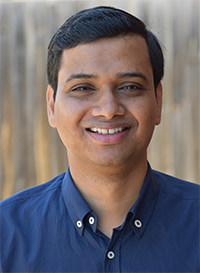
Dr Tanveer Adyel’s project will be the first study examining microplastics in Australian wetlands.
Dr Miranda Blake
Institute for Health Transformation (IHT)
$411,500
This project aims to provide empirical evidence to drive sustained retailer change in favour of healthier food offerings. Australian food environments drive unhealthy diets and are a major cause of social, productivity and wellbeing loss. Using implementation science methods applied to rigorous real-world trials and policy collaborations, the project will test the effectiveness of innovative methods for sustaining organisational change across a range of retail settings.
Outcomes of this project will deliver significant benefits by enabling retailers, governments, and public health advocates nationally and internationally to make the lasting changes to retail environments needed to improve productivity and population wellbeing.
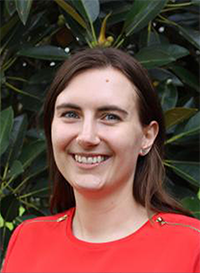
A project by Dr Miranda Blake aims to make lasting changes to food retailers in favour of health food offerings.
Dr Renae Fomiatti
Faculty of Arts and Education
$444,662
Cosmeceuticals are a new category of product at the intersection of cosmetics and pharmaceuticals taken to prevent and treat the physical signs of ageing. This project aims to investigate the advertising, regulation and use of cosmeceuticals, drawing on an innovative theoretical approach and qualitative methods.
This project expects to generate new knowledge on the relationship between cosmeceuticals and contemporary experiences of health, ageing and gender. Expected outcomes include recommendations to improve healthcare and regulation and public outputs to help consumers navigate anti-ageing imperatives. This should provide significant benefit by reducing consumer harms and the associated social, health and economic consequences.
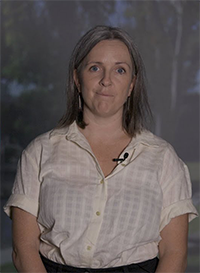
Dr Rena Fomiatti will investigate the advertising, regulation and use of cosmeceuticals.
Dr Mega Kar
Institute for Frontier Materials (IFM)
$445,237
This project aims to develop sustainable high-performance sodium batteries by investigating new non-flammable and safe electrolyte chemistries. The project will generate knowledge in materials chemistry for battery electrolytes that will underpin improvements in battery technology and help to move society towards a zero-carbon economy.
The outcomes will provide materials suitable for prototyping reliable, safe and sustainable batteries in Australia and enhance research collaborations with local and international industry partners. These advances will contribute to reliable, affordable, and sustainable energy storage systems, positioning Australia at the forefront of advanced battery research.

A project led by IFM’s Dr Mega Kar will investigate new non-flammable and safe electrolyte chemistries to develop sustainable high-performance sodium batteries.
Dr Natalie Lander
Institute for Physical Activity and Nutrition (IPAN)
$364,774
The impact of the COVID-19 pandemic on children has been far-reaching. Many students have fallen behind academically, are experiencing mental health challenges and have critically low levels of physical activity. These issues have become a global research priority, the focus of national and state policies, and urgently need addressing.
This project offers a novel initial teacher education program that integrates meaningful physical activity into classroom learning to address critical classroom challenges, exacerbated by COVID-19. The empirical findings are expected to generate new knowledge and practices to strengthen teaching degrees from a robust evidence base and benefit the learning and health outcomes of all Australian students.
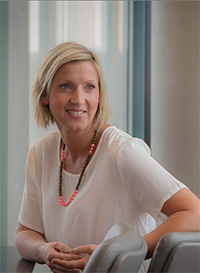
Dr Natalia Lander’s teacher education program will integrate physical activity into classroom learning to address critical classroom challenges.
Dr Joe Latham
Alfred Deakin Institute for Citizenship and Globalisation (ADI)
$393,488
This project aims to investigate how practitioners and LGBTIQ+ patients engaged in long term psychological support experience telehealth and navigate continuity of care in their experience of this support. This project expects to generate new knowledge to support the provision of best practice in telehealth support for disadvantaged and vulnerable groups.
This project will enhance understanding of how practitioners and patients navigate continuity of care and psychological support via telehealth and practice-ready resources for medical providers. This should provide significant benefits such as expanded accessibility, improved service delivery, usability and effectiveness in mental healthcare in Australia.

Dr Joe Latham will investigate how practitioners and LGBTIQ+ patients engaged in long term psychological support experience telehealth and navigate continuity of care.
Dr Miaobing (Jazzmin) Zheng
Institute for Physical Activity and Nutrition (IPAN)
$448,801
This project adopts novel statistical modelling and machine learning approaches to understand the development of lifestyle behaviours in early childhood. Despite the pivotal role of lifestyle behaviours in influencing health and quality of life, little research exists on lifestyle behaviours in early childhood.
This research will establish a comprehensive understanding of lifestyle behaviours in early childhood by identifying key developmental time points, mechanisms of behavioural change, and children at risk of developing poor lifestyle behaviours. The project will inform strategies and policies to optimise lifestyle behaviours from the start of life and showcase the capabilities of novel methods in advancing behavioural epidemiology.
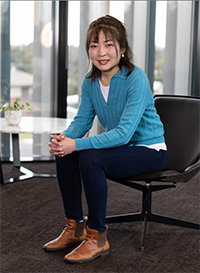
IPAN’s Dr Jazzmin Zheng will use statistical modelling and machine learning approaches to understand the development of lifestyle behaviours in early childhood.
Dr Ali Zolfagharian
Faculty of Science, Engineering and Built Environment
$420,198
This project aims to facilitate the design and manufacture of specialised objects that can change their shape over time. These types of objects are made from ‘tuneable metamaterials’, which can be made by 4D printing: 3D printing with an added dimension of time. These materials are becoming indispensable in many fields- including non-metallic soft robots used in medicine or the exploration of harsh environments like space- but are currently onerous to make.
This project will develop a revolutionary new method for a user to work backward from defining the desired qualities to the manufacture of the object that satisfies their needs. It will also create a library that will allow users to quickly select a material that will be appropriate.
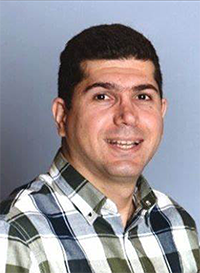
The research focus of Dr Ali Zolfagharian will be to design and manufacture specialised objects that can change their shape over time.
The text of this article is licensed under the Creative Commons Attribution (CC BY) 4.0 International license. We'd love for you to share it, so feel free! Please note that images, videos, graphics and logos are not covered by the CC BY license and may not be used without permission from Deakin University or their respective copyright holder. If you have any questions please contact researchcomms@deakin.edu.au.
Thanks for reading! You can find more stories like this at https://www.deakin.edu.au/research/research-news-and-publications. We ask that Deakin University and individuals are appropriately credited and that you include links back to this website. Quotes in this article can be extracted for other articles provided individuals are appropriately credited and you include a link back to the article URL.
Share this story
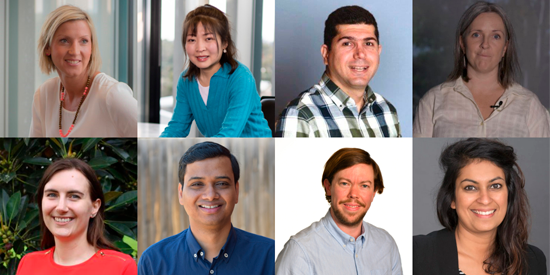
Key Fact
The highly-competitive DECRA scheme provides focused research support for early career researchers.
